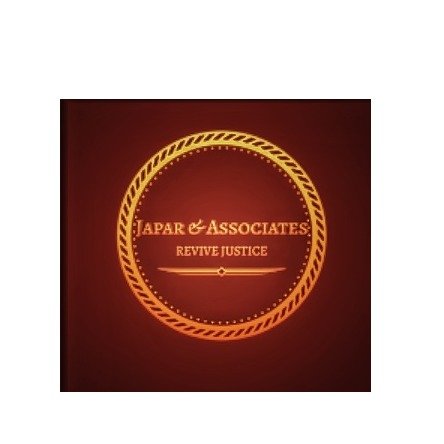Best Nonprofit & Charitable Organizations Lawyers in Surabaya
Share your needs with us, get contacted by law firms.
Free. Takes 2 min.
List of the best lawyers in Surabaya, Indonesia

Jiwangga Law Office | Lawyer Surabaya | Advokat Surabaya | Pengacara Surabaya
30 minutes Free ConsultationAbout Nonprofit & Charitable Organizations Law in Surabaya, Indonesia
Nonprofit and charitable organizations in Surabaya play a crucial role in addressing social, environmental, and cultural issues. They can include foundations, associations, and other entities organized for public benefit purposes. Indonesia, including Surabaya, has specific laws governing the operation, management, and obligations of these organizations to ensure they function transparently and effectively. The primary legal framework for these organizations is regulated under the Indonesian Law on Foundations, the Law on Associations, and other related regulations.
Why You May Need a Lawyer
Navigating the legal landscape of nonprofit and charitable organizations comes with a distinct set of challenges. Commonly, individuals or organizations may require legal assistance in the following situations:
- Establishing a new nonprofit or charitable organization and ensuring compliance with Indonesian legal requirements.
- Navigating complex regulations around tax exemptions and reporting obligations.
- Ensuring the organization’s operations align with its stated charitable purpose and comply with fiduciary duties.
- Dealing with employment law as it pertains to hiring staff or volunteers.
- Handling disputes or issues regarding liability and risk management.
- Overseeing mergers, collaborations, or partnerships with other entities.
A lawyer can provide invaluable advice and assistance in these areas, ensuring that the organization maintains legal compliance and effectively navigates any challenges.
Local Laws Overview
Understanding the key aspects of local laws applicable to nonprofit and charitable organizations in Surabaya involves grasping several essential points:
- Establishment and Registration: Organizations must be founded as either an association or a foundation and fulfill specific registration requirements including submission of statutes and getting approval from the Ministry of Law and Human Rights.
- Financial Governance: Transparency and accountability in financial operations are critical, with specific reporting needed for financial transactions, taxes, and donations.
- Tax Regulations: Certain activities may qualify for tax exemptions, but these must be claimed correctly, and the organization must adhere to tight regulations around financial disclosure.
- Operational Compliance: Organizations must abide by laws promoting public benefit, restrict certain for-profit activities, and regulate the management of charitable resources.
- Public Benefit Requirement: Nonprofits must ensure that their activities primarily serve a public interest and not private gains.
Frequently Asked Questions
What is required to start a nonprofit or charitable organization in Surabaya?
Starting a nonprofit or charity in Surabaya involves choosing between forming a foundation or an association, drafting the necessary statutes, and registering with relevant government authorities.
Are there specific tax benefits available for nonprofits in Indonesia?
Yes, qualifying nonprofits can apply for tax exemptions and benefits. However, they must strictly comply with regulations to maintain their tax-exempt status.
How transparent must a nonprofit be in terms of financial reporting?
Nonprofits must provide clear financial reporting, including annual reports and, where applicable, audits to comply with regulations and maintain trust with stakeholders.
Can nonprofits engage in commercial activities to support their causes?
While foundations in Indonesia may engage in commercial activities, these must support their primary nonprofit objectives, and the profits should be used to further the organization's missions.
What legal liabilities do nonprofit directors face?
Directors must fulfill fiduciary duties, which include acting in the best interests of the organization, avoiding conflicts of interest, and adhering to the organization’s mission and legal requirements.
What should nonprofits know about employment law in Surabaya?
Nonprofits must comply with local employment laws, including those concerning worker rights, wages, and conditions, whether they involve paid employees or volunteers.
Is it necessary to consult with a lawyer for all legal issues?
While not legally required for all issues, consulting with a lawyer is highly recommended, especially for complex legal matters, to ensure compliance and address any potential liabilities.
Are there specific laws regarding fundraising in Surabaya?
Yes, fundraising activities in Surabaya must adhere to regulations that ensure transparency and integrity in the solicitation, collection, and management of funds.
Can foreign entities establish nonprofits in Surabaya?
Foreign entities can establish nonprofits, but they must navigate additional regulations and may be subject to more stringent oversight and ownership rules.
How can a nonprofit amend its statutes or objectives?
Any amendments to the statutes or objectives must be approved by the appropriate governmental body and meet any legal requirements stipulated by Indonesian law.
Additional Resources
For additional assistance or more detailed information, consider consulting the following resources:
- Ministry of Law and Human Rights: The primary government body overseeing the registration and regulation of nonprofits.
- Directorate General of Taxes: Provides guidance on tax benefits and compliance issues for nonprofits.
- Local Legal Aid Organizations: Offer assistance and advice, especially for smaller organizations with limited resources.
- Indonesian Center for Law and Policy Studies: Provides research and analysis on nonprofit and association laws.
Next Steps
If you need legal assistance for a nonprofit or charitable organization in Surabaya, consider the following steps:
- Identify Your Needs: Clearly outline the legal issues or questions you need help addressing.
- Research Legal Professionals: Look for lawyers or firms specializing in nonprofit law in Indonesia or Surabaya specifically.
- Schedule Consultations: Arrange initial meetings to discuss your needs and determine their expertise and fit with your organization.
- Prepare Documentation: Gather any documents, records, or evidence you may need for consultations or ongoing legal work.
- Engage a Lawyer: Once you're satisfied with a lawyer's qualifications and fee structure, formalize the relationship by signing a retainer agreement.
Following these steps will help ensure you receive qualified legal assistance for your nonprofit or charitable organization's needs in Surabaya.
Lawzana helps you find the best lawyers and law firms in Surabaya through a curated and pre-screened list of qualified legal professionals. Our platform offers rankings and detailed profiles of attorneys and law firms, allowing you to compare based on practice areas, including Nonprofit & Charitable Organizations, experience, and client feedback.
Each profile includes a description of the firm's areas of practice, client reviews, team members and partners, year of establishment, spoken languages, office locations, contact information, social media presence, and any published articles or resources. Most firms on our platform speak English and are experienced in both local and international legal matters.
Get a quote from top-rated law firms in Surabaya, Indonesia — quickly, securely, and without unnecessary hassle.
Disclaimer:
The information provided on this page is for general informational purposes only and does not constitute legal advice. While we strive to ensure the accuracy and relevance of the content, legal information may change over time, and interpretations of the law can vary. You should always consult with a qualified legal professional for advice specific to your situation.
We disclaim all liability for actions taken or not taken based on the content of this page. If you believe any information is incorrect or outdated, please contact us, and we will review and update it where appropriate.
















